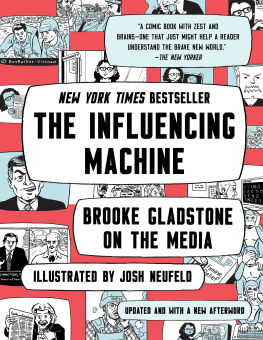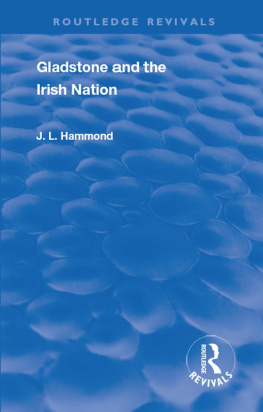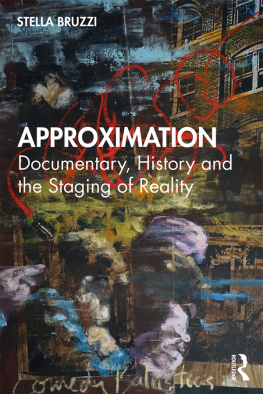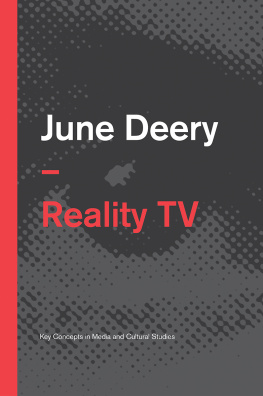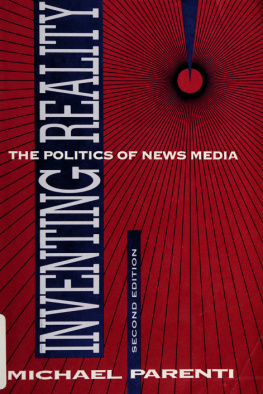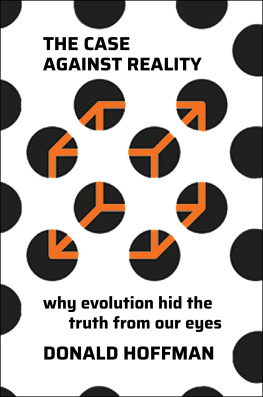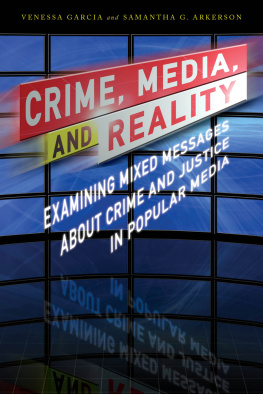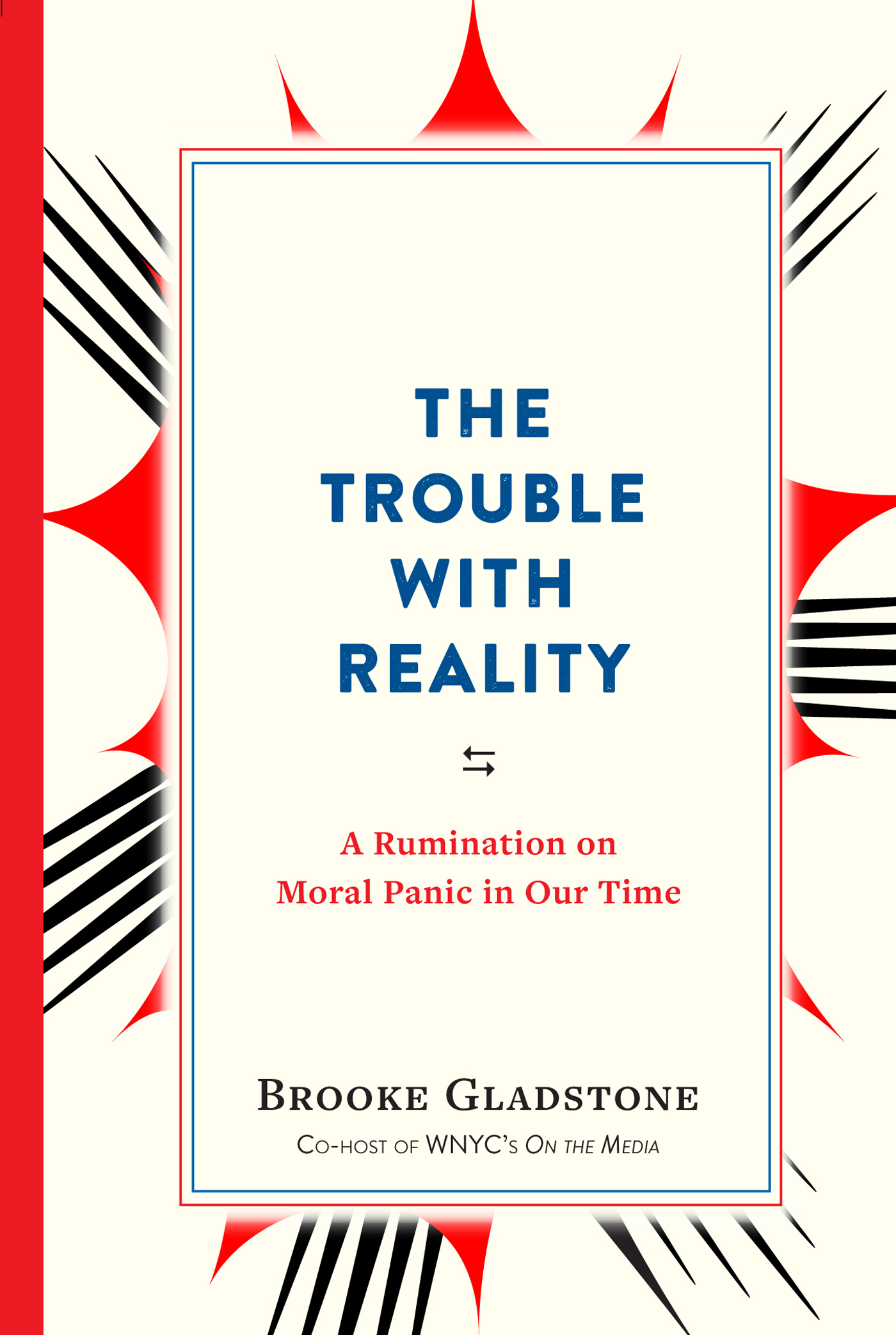
The Trouble with Reality

A Rumination on Moral Panic in Our Time
Brooke Gladstone
Workman Publishing New York




Contents
To Fred, Maxine, and Sophie
Doubt is to certainty as neurosis is to psychosis. The neurotic is in doubt and has fears about persons and things; the psychotic has convictions and makes claims about them. In short, the neurotic has problems, the psychotic has solutions.
Thomas Szasz, The Second Sin
In Here
P erhaps you picked up this book because an icy hand grips your viscera; sometimes squeezing, sometimes easing, always present. And you suspect that this intimate violation, this forced entry, proceeds from something more profound than politics. You imagine that reality itself is engaged in an epic existential battle and you stand helpless against the onslaught, as the truth is trumpled into dust.
That said, you can feel better. After reading this, perhaps that terrible pressure will begin to ebb, but it will never leave you. Having watched history unspool in a direction you never believed it could go, now you question reality, and its likely you always will. Because reality is more slippery than a pocketful of pudding.
Is reality what we are able to confirm with our five senses? As New Scientist magazine noted some years back, This answer ignores such problematic entities as electrons, the recession and the number 5, not to mention a heap of phantom limbs.
Is reality what a significantly large group of people hold to be true? Certainly no one currently living in America (or on Earth) could believe that. Now the unknowing or unhinged can coalesce a vast number of like-minded souls into a force so powerful it can shift realitys prism or elect a president.
Part of the problem stems from the fact that facts, even a lot of facts, do not constitute reality. Reality is what forms after we filter, arrange, and prioritize those facts and marinate them in our values and traditions.
Reality is personal.

Americas most determined architect and annihilator of reality was the science fiction master Philip K. Dick. Included in the anthology The Shifting Realities of Philip K. Dick is a speech he delivered in 1978:
It was always my hope, in writing novels and stories which asked the question What is reality?, to someday get an answer....
Even after writing over thirty novels, he never found one. Finally, when a philosophy student asked him to define reality, he replied:
Reality is that which, when you stop believing in it, doesnt go away. Thats all I could come up with.
But he knew we urgently needed a better answer:
... because today we live in a society in which spurious realities are manufactured by the media, by governments, by big corporations, by religious groups, political groups.... Very sophisticated people using very sophisticated electronic mechanisms. I do not distrust their motives; I distrust their power. They have a lot of it. And it is an astonishing power: that of creating whole universes, universes of the mind. I ought to know.... It is my job to create universes.... And I have to build them in such a way that they do not fall apart two days later.
... the matter of defining what is realthat is a serious topic, even a vital topic. And in there somewhere is the other topic, the definition of the authentic human. Because the bombardment of pseudo-realities begins to produce inauthentic humans very quicklyas fake as the data pressing at them from all sides. Fake realities will create fake humans. Or, fake humans will generate fake realities and then sell them to other humans, turning them, eventually, into forgeries of themselves.... It is just a very large version of Disneyland.
What Dick saw forty years ago many of us see now, at least those of us whose reality embodies liberal values. It was as if that reality was sucked into a black hole, which then erupted, spewing hot flows of a grimmer vision. No American escaped the tremorsmany enjoyed thembut more than half the nation suffered some degree of vertigo.
What to do? Often, the graver the illness, the harsher the treatment.

If fake reality is the problem, the logical first step is to track it to its source, but that is a very short, very frustrating expedition, because fake reality begins at home. In your head. And even before that, in your umwelt.
Umwelt expresses the idea that different animals living on the same patch of earth experience utterly disparate realities. Writing in Edge, neuroscientist David M. Eagleman put it this way:
In the blind and deaf world of the tick, the important signals are temperature and the odor of butyric acid. For the black ghost knifefish, its electrical fields. For the echolocating bat, its air-compression waves.
The small subset of the world that an animal is able to detect is its umwelt.
The bigger reality, whatever that might mean, is called the umgebung.
To appreciate the amount that goes undetected in our lives, imagine youre a bloodhound dog. Your long nose houses two hundred million scent receptors... your wet nostrils attract and trap scent molecules. The slits at the corners of each nostril flare out to allow more airflow... your floppy ears drag along the ground and kick up scent molecules. Your world is all about olfaction.
One day while trotting behind your master, you are stunned by a revelation. The human with whom you stroll is profoundly disabled! You glory in smell while he stumbles along with stunted senses! How diminished, how sad, his life must be.
Obviously, we suffer no absence of smell because we accept reality as its presented to us. Without the olfactory capabilities of a bloodhound, it rarely strikes us that things could be different.
Therein lies the root of the problem, succinctly rendered by the philosopher Arthur Schopenhauer in his aptly titled Studies in Pessimism: Every man takes the limits of his own field of vision for the limits of the world.

We cannot know the world, but we have to live somewhere. So we construct cozier, more comprehensible versions, move in and hunker down. Meanwhile, out there in the umgebung, millions of others do likewise, people we dont know and mostly dont care to. These people are stereotypes.
Journalist and critic Walter Lippmann introduced stereotypes, in the psychological sense, back in the 1920s. In his seminal work Public Opinion, he noted that we pick up a salient detail about a person or groupblack, white; international banker, kindergarten teacher; in Brooklyn, Baton Rougeand then blithely fill in the rest of the blanks. Now we think we know them.
Our worldview is built on a bedrock of stereotypes, not just about people but also about the way things work. The power of those stereotypesvital to survival in this unfathomable worldis as profound as it is inescapable.
Next page

